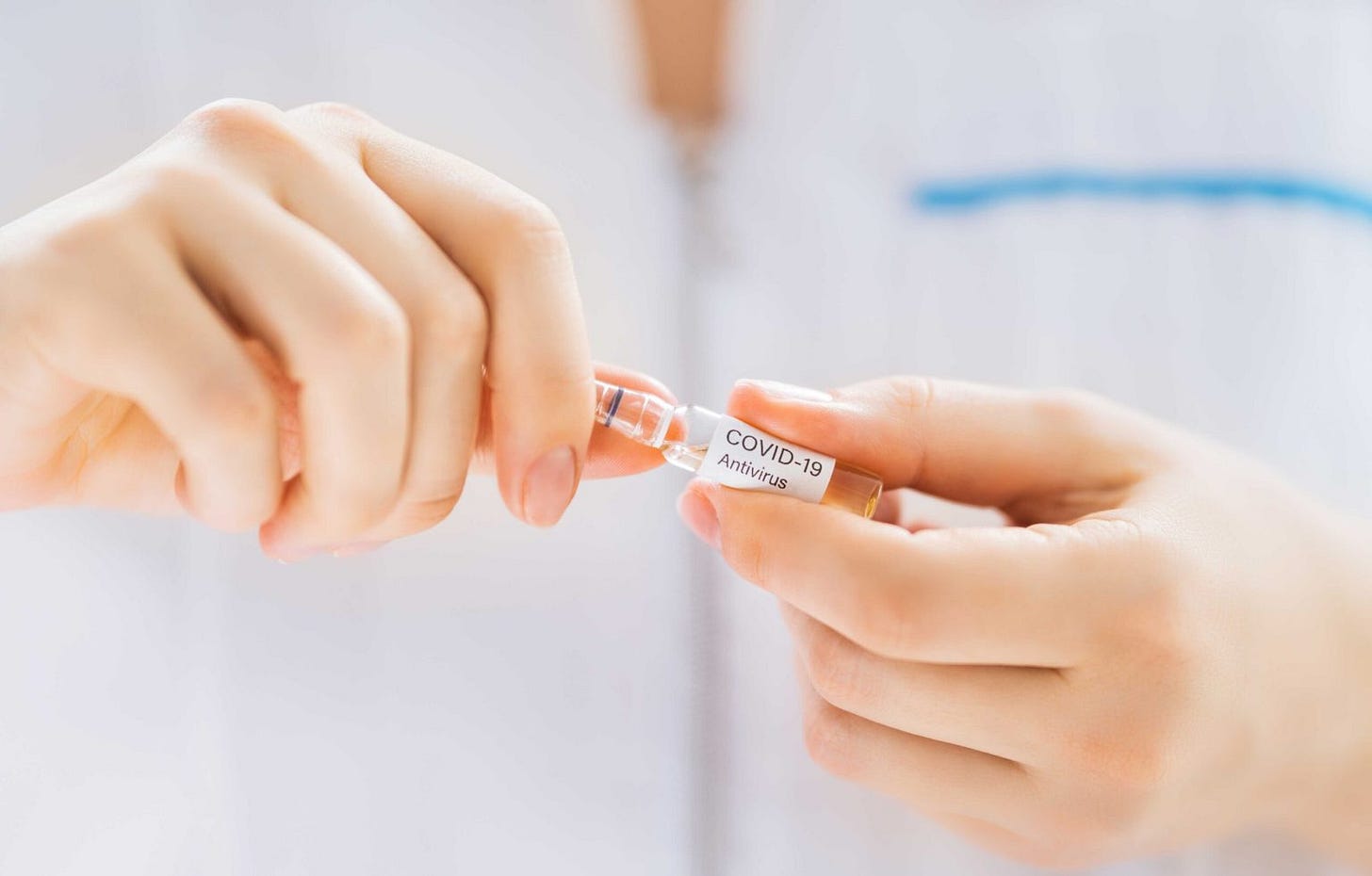My Experience: FLCCC Treatment and Prevention Protocols
Out of 4000+ acute COVID-19 patients I had 5 hospitalized, none died, 4000+ recovered. 5 pharmacists threatened to report me to the medical boards and my staff had to transfer hundreds of prescriptions to secondary pharmacies due to outright pharmacist refusals.
I was subjected to 1 frivolous medical board complaint. I had to retain a lawyer to help with that and thankfully the board dropped it, but not before it had wasted a lot of precious time that could have been spent on patient care.
Early Days
When I first started using ivermectin for acute COVID patients in early 2021 I saw one elderly lady who did not get better out of the first 20 patients I treated. She was hospitalized but did eventually improve.
After those first twenty patients, Steve Kirsch told me about Fluvoxamine, showed me the data and I was convinced that it needed to be added to the protocol (and recently the phase 3 trial confirmed that decision showing a 91% reduction in death for per-protocol patients).
In the next 1000 patients, there was only 1 hospitalization. Approximately the same rate held from there on out.
An Ounce of Prevention
As for prevention, I have prescribed it to many thousands of patients, and less than 1 in 1000 ended up catching COVID-19 when they are on Ivermectin. Initially, I used it once every 2 weeks, then increased that to once a week as more data came in from around the world, and then when Delta started proliferating I went up to twice a week in line with FLCCC recommendations.
At the beginning of the Delta wave, I saw my first patient on once-weekly ivermectin come down with COVID-19. Prior to that, I had not seen a breakthrough case in 2000 patients, over a span of 9 months.
Delta Variant Blues
Delta patients got sick much faster and progressed rapidly. I increased the dosing of ivermectin from 0.2mg/kg daily to 0.4mg/kg daily. I also prescribed pravastatin and a budesonide inhaler to all comers.
Following the continually updating FLCCC protocols, for higher risk or more severely ill patients I added another anti-parasitic, nitazoxanide, and the dual anti-androgen therapy, spironolactone, and dutasteride. If lung function worsened I prescribed cyproheptadine.
Now the Delta wave is declining, but another variant is on the rise in the US, and based on the predictions of Geert Van Den Bossche and others I expect there will be another wave in winter 2021-2022.
Time is Life
We have a saying in medicine regarding stroke patients: time is the brain. It means that once the blood supply is interrupted you only have a short window of opportunity to save brain tissue with a clot-buster drug.
Early on in COVID-19 doctors might say time is lung, but nowadays it is more accurate to say time is life. If you wait too long you may be at the end of the road.
Prevention and early treatment are working great still. But ICU doctors are seeing very high mortality rates, even with optimal treatment according to FLCCC protocols.
I spoke with Dr. Pierre Kory, president of the FLCCC and he reported a 90% mortality rate once patients get to his ICU. This is new. Previously patients could often be saved even in later stages.
This points to the need to intervene early. Be a boy scout, be prepared. Have a COVID kit in your medicine cabinet. Get the nebulizer, the pulse ox, a blood pressure cuff, and all the vitamins. Make sure your vitamin D level is in the normal range. Lose any extra tires around your belly. Get the prescriptions you need early.
If you wait until you get sick it may take a few days to realize you have COVID and a few more days to connect with a doctor and get your ivermectin, fluvoxamine, and other treatments.
After the medical board complaints and pharmacy threats, I had to stop using local pharmacies and depend on friendly mail-order ones. Although most pharmacies have had to raise their prices for ivermectin there are still some mail-order pharmacies with very cheap stock, but it will take a few days to arrive, and every day is precious when you have COVID. It should be treated on day 1 of symptoms, or earlier if you test positive after exposure and before symptoms.
The time you waste trying to line up treatment last minute may not be a time you have to spare.




